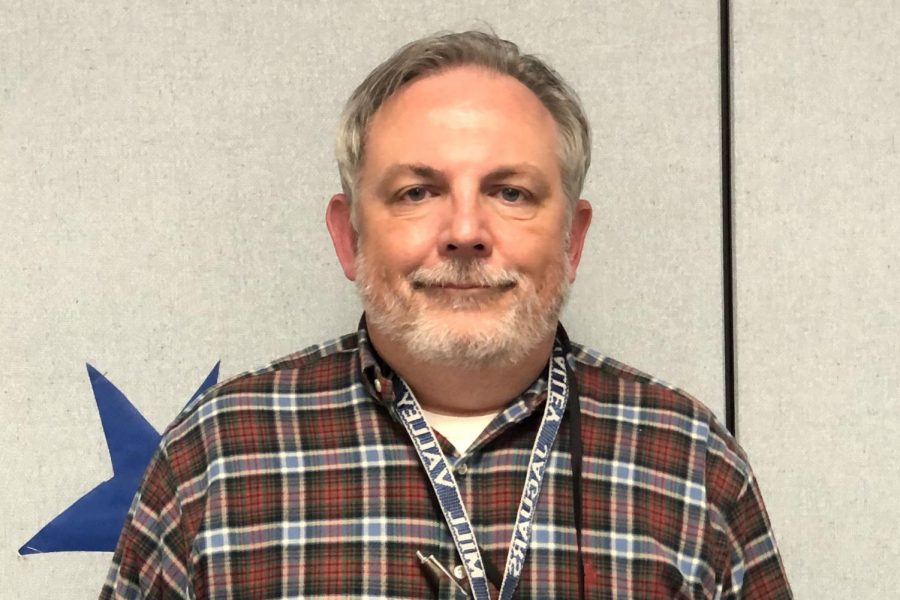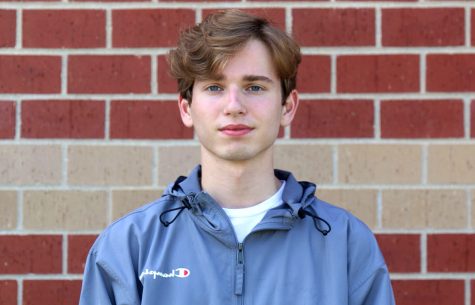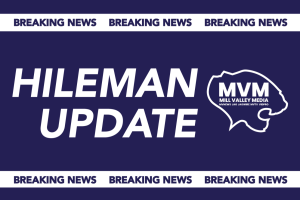Q&A with new debate teacher Cameron Carlson
The JagWire sat down with Carlson to learn about his outlook on teaching and the debate and forensics program this school year
New debate teacher, Cameron Carlson, is heading the program for the 2020-2021 school year. The JagWire sat down with Mr. Carlson and went over his outlook for the school year and program.
December 22, 2020
JagWire: First, tell us a little about yourself.
Cameron Carlson: “I first started teaching as an English teacher and then within a year, I was the forensics coach. I was a head coach for six years and I taught English, debate and forensics while I was [head coach]. I did debate and forensics before I went to become a principal, and then I became a principal for nine years, and I’ve been a professor at higher ed for the past 11. My background has been transitioning away from being the Dean of the School of Education and social work at Newman.”
JW: Describe your college experience.
CC: “I was really competitive, at least on the forensic side, in high school, and I really enjoyed it…I went to went into debate and forensics and went on a scholarship to Wichita State. I competed for their team for three years, and prior to that, I was actually on a full ride at Central State, which is now the University of Central Oklahoma. I continued to go back to Wichita State, so I finished my master’s at Wichita State. The last two years I was was coaching, and then I finished my doctorate fairly shortly after that.”
JW: Why did you decide to go into teaching?
CC: “Originally, it was just because I wanted to make connections with students and historically, and that’s the reason why I came back, because I got to the point where I had to stop to take a break to raise my kids, and then once the last one left the house, I was going to look for a debate for this position again because that’s what I was planning on doing. That happened a lot earlier, and this position happened a lot earlier than I was expecting, so I just applied for it.”
JW: What do you enjoy about teaching?
CC: “Particularly with the arts, I think it’s a way for students to learn how to express themselves. I think it’s important that young people find their voice, and that they figure out how to use it appropriately. The one thing with forensics, in particular, is it gives us feedback every Saturday from other adults that are also watching what the students care about. I’ve had students in the past, 20 years ago when I was coaching that I’m still connected very closely with. Where you recognize birthdays and still connect with marriages and kids and everything else over the years. I think what is important also is that the students that are involved in an activity like that understand how to make that more of a family and that they make sure to check on each other, too. There are so many different reasons why I think it’s, it’s important to continue to go back and try to nourish that along.”
JW: What is your goal for the debate and forensics program as a new teacher?
CC: “I would say to stabilize it, but also to help the students understand that they have leadership potential within the program itself. I like to get a lot of student input about how we do certain things, and where we’re headed, but at the same time, I’m very competitive in terms of trying to make sure that what we’re doing is going to help them put their best foot forward. For me, it’s a transition of making sure that the students understand where they’re best initially suited to be able to be successful, and then grow them into areas where they can be successful and other places where they may not be as suited right away. It’s just a matter of helping them find their initial potential and help them grow it into what they can do well.”
JW: What do you want students to know about you?
CC: “I would say just that I’m a fairly open book, but I really do care about, about them as people. We’re here to try to build a community together. We’re here to make sure people feel connected, and we’re here to make sure that whatever we do, helps promote the activity for underclassmen that might be coming in, so I want them to realize that they’re part of creating that family.”
JW: What is an interesting fact about yourself?
CC: “The past 11 years I’ve been in higher education, and while I’ve enjoyed that, the passion is for working with high school students, and it always has been, and it’s worked out in several different ways. Again, as somebody that has been responsible for teacher preparation, at a couple of different institutions, I’ve embedded that in lots of different ways, so that they can look at how to make sure that students are heard and that their voices are acknowledged and really appreciated it. A lot of times, adults talk at students and I’m more trying to figure out how to talk with them ad try to help them take their next step. They’re here to understand their journey, not not for them to recreate mine. It’s a matter of my helping them along the way if I can.”
JW: With COVID-19 and different learning models what are your fears?
CC: “I don’t really have any fears, I’m excited about it. My dissertation was on leading a laptop initiative, and this is about 15 years ago, so we didn’t have a one-to-one initiative at that point. I was really excited about teaching as a principal and I decided to check myself back in the classroom to make sure I can do it. Ever since then, we’ve been using laptop technologies and things like that. Some of the institutions I’ve had were, one-to-one, so I’m very familiar with that.t I don’t have any fears, I’m kind of excited about that, particularly the hybrid [model], and figuring out ways to engage students online and if they’re here physically present, and making sure that people don’t miss out on what we do, if they have an activity, I don’t want necessarily want to redo the same activity the following day, so I want to make sure that it’s a meaningful experience for them on whether they’re either online or whether they’re in person, so that’s probably my biggest challenge to figure out. I hope students feel comfortable providing input and feedback as to what’s going well, what’s connecting well with them, to make sure that I’m open to feedback as they see that it’s working or not.”
JW: Are there any interesting differences about the school compared to other institutions you’ve worked at?
CC: “I think what I’m noticing, particularly here, is how quickly students lead and feel like they can, so I feel like there’s a sense of student empowerment here that’s different than what I’ve seen. My biggest source for what was going on at Mill Valley was the student newspaper and Mill Valley News, so I was watching that once I started, and I really appreciate the depth and the quality of those publications and the way they work. For me, there are things that seem to be a notch above what I would expect at other places and I think everyone really focused on what they’re doing. It’s nice to see that coming back into it, that people seem to have the power to make a difference, and they seem to build a community together.”











Mrs. Cam Brother • Feb 24, 2021 at 11:57 am
Just curious if Cameron Carlson is a former student of mine. I taught fourth grade in Broken Arrow in the 70s. He was he sharpest tack in the box.